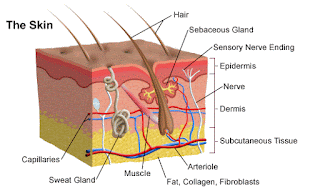What happened to women's body and health
At the ages 20 to 50 ?
This is a time when women face considerable demands on their time, both physically and mentally. This can be a period where women are also trying to juggle a career, raise a family and run the home at the same time. This can lead to high stress levels which in turn lead to poor eating habits and poor nutrient absorption.
I know that most women lead an incredibly busy life during this period. Having to deal with so much can make it difficult to ensure a regular balanced diet. I also know that different stages of a woman's life are makes by hormonal changes and during these periods, women's nutritional needs change symptoms of nutrient deficiency may be more pronounced prior to menstruation giving rise to mood swings, sugar cravings, muscle cramps and bloating. It is important to take time to relax both physically and mentally. Many women find that meditation or mindfulness can be a useful way of dealing with stress and anxiety. Energy levels canals fluctuate as so much is going on during this period of life. Vitamin B12 is an important nutrient to help with energy level.
Eating habits
Women in this age group need to have a healthy diet 80% of the time and spoil themselves 20% of the time! This period of life can be a time when women feel pressure to have the 'perfect body' and may resort to unhealthy or faddy diets. Keep in ind that specific dietary habits can affect the body's nutritional requirements and this must be taken into account when choosing a supplement regime.
Little fruit or vegetables in the diet
Everyone's diet should include at last 7 portions of fruit or vegetables a day, this is an absolute minimum not a target to try and reach! The emphasis should be more on the vegetable intake rather then the fruit intake.
Heavy tea and coffee drinkers
Limit intake to 2-3 cups a day. These drinks are stimulants that deplete the body of vital nutrients (if taken in excess), especially the minerals zinc, calcium and magnesium. Include herbal teas, such as chamomile or green tea, which are considered good alternatives.
Low fat / fat free diets
Cutting out all fats from the diet means there is a real risk of deficiency in essential fatty acids. It is important to cut down on fatty foods such as fried foods and take aways as these type of foods aren't healthy. However, the numbers EPA an DHA from oily fish are fundamental to health, controlling many of our hormonal balance. Omega 3 essential fatty aides are also beneficial for our brain function. Try to add oily fish to the diet in the form of sardines, anchovies and salmon at least 2-3 times per week or supplement with a fish / krill oil supplement. Avocados are incredibly nutritious and rich in healthy fats, they are easily incorporated into salads, or smoothies. Another healthy option are nuts as they are a great snacking choice with diverse nutritional credentials.
Lifestyle factors / health factors
Urinary tract infections - these problems are most commonly caused by the bacteria E.coil. These bacteria stick to the bladder wall and cause the sensation of burning or pain on urination, with the increased need to urinate. Try to avoid sugary foods which can worsen symptoms, and include unsweetened cranberry extract as many women have found this to be helpful in reducing their symptoms.
Hormonal imbalance - Many women can duffer form symptoms including stomach cramps, breast tenderness and mood swings. Magnesium is known as 'nature's relaxant' and may be useful to take at this time. Evening primrose oil is often recommended by practitioners to help with symptoms. If sugar cravings are a problem chromium may be helpful to balance blood sugar levels and therefore help with the cravings. There is also evidence to suggest that Vitamin D can relieve the symptoms of hormonal imbalance as levels of this nutrient are known to fluctuate during the menstrual cycle.
Anxiety / stress
These are common in people aged 20-35 years of age. In addition, many women experience menstrual related symptoms. Food intolerances can often be a major cause with chocolate, cheese and alcohol being the most likely culprits. Keeping a food diary may help to establish which things trigger attacks. Other influences include hormonal changes and stress 65% of sufferers agreed that taking magnesium supplements in tablet form helps. Also worth considering is the nutrient CoQ10 as study data suggests that it is a useful supplement at this time.
Fatigue
Feeling weary is a modern - day epidemic due to the fast pace of life. If productivity at home or work has dropped consider including more magnesium and Vitamin D food sources in the diet. If this is not possible, supplement are a convenient way to support your eating habits.
If you are finding difficult to build your healthy eating habit, and you need some advice regarding supplementation, please do not hesitate to message me direct - Click here
Thank you
Cary Lam












